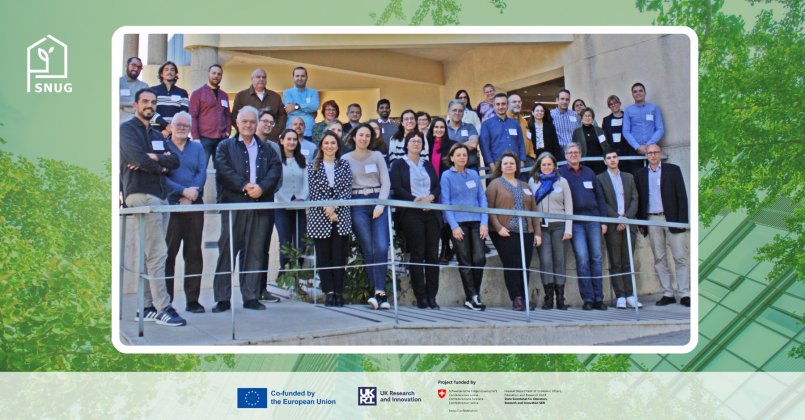SNUG - The new EU project that is fighting energy poverty and pioneering the green construction revolution

Energy poverty is on the rise across Europe as a growing number of citizens struggle to afford access to essential energy, particularly with escalating energy costs and market volatility due to the current geopolitical context. In response to this urgent challenge and driven by sustainability concerns as well, SNUG, an innovation project co-funded by the European Union (EU), the UK Research and Innovation (UKRI) and the State Secretariat for Education, Research and Innovation (SERI), is placing a strategic focus on building energy efficiency from a construction point of view.
A call for prioritizing energy efficiency
According to the European Commission, over 30 million building units in the EU consume excessive energy (at least 2.5 times more than average buildings), which drives up the energy bills of households. People facing energy poverty are essentially those living in worse energy-performing buildings. In fact, energy efficiency is widely agreed to be the most effective solution to alleviate energy poverty. Renovated and better isolated buildings are ultimately a synonym for lower energy costs.
Beyond social justice motivations, there is also a critical and underlying environmental dimension that begs attention. As part of the Green Deal, the EU has set ambitious goals for climate-neutrality and the decarbonization of the member states' building stock, pledging to turn all buildings into Zero Emission Buildings (ZEBs) by 2050. Currently, buildings account for around 40% of the total energy consumption and greenhouse gas emissions (GHG) within the bloc. Additionally, throughout their construction, use, renovation and demolition, buildings contribute to approximately 50% of extracted materials and over 35% of the EU’s total waste generation.
Transforming the buildings of tomorrow
SNUG aims to develop an innovative methodology based on circular economy principles and artificial intelligence to reshape the construction industry and foster the transition to sustainable and high-energy performance buildings at a cost-optimal level. The mission is clear: enhance building energy efficiency and sustainability over its full lifecycle by empowering architects and builders to make greener choices.
Core to SNUG’s vision is the development of new thermal insulation and lightweight prefab solutions made of local renewable materials and bio-based components to improve energy efficiency and sustainability at a competitive cost, and the creation of a digital tool assistant to support architects and builders in the material selection and layout processes, providing tailor-made solutions taking into account technical, environmental, and economic inputs. Complementing these efforts is the establishment of a database of thermal insulation materials to be released as an open data tool, listing existing and new solutions with detailed life cycle assessment information, and the aggregation of a digital building logbook to facilitate decision-making and information sharing within the construction sector, connecting building owners and occupants, financial institutions and public authorities.
“Buildings are absolutely central to our daily lives. Therefore, adopting more eco-conscious construction practices is not just a choice, it is imperative to ensure a sustainable future for the generations to come”, states Amparo Roca de Togores López, SNUG’s project coordinator. “SNUG envisions a world where buildings seamlessly integrate with the environment. By selecting low-impact insulation materials that align with each building's unique features and surroundings, we believe the construction industry can significantly reduce energy consumption and greenhouse gas emissions. Along with energy efficiency, we prioritize cost-effectiveness and are committed to developing solutions that democratize sustainability, enabling communities to fight energy poverty."
Over the next three years and a half, SNUG will implement and validate its groundbreaking approach in three real-life buildings. These use cases will target renovations and new construction, covering housing, office and commercial spaces, across different climates:
Energy efficiency, carbon footprint, indoor comfort and structure durability will be quantified through continuous monitoring to assess the success of the proposed methodology in achieving the ZEB standards as well as its replicability potential.
Comprising 17 partner entities from 11 countries, the SNUG consortium gathered this November in Valencia for its kick-off meeting. The inaugural session was centered on discussing the collective commitment to innovating construction materials through sustainable alternatives, and creating cutting-edge tools to address the evolving needs of decision-makers in the construction industry. Placing a strong emphasis on environmental consciousness, efficiency and global impact, the partners also focussed on exploring opportunities for future market adoption.